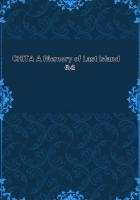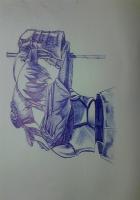But in addition to the above considerations there is yet (to judge by analogy) a further ground, upon which judgement may be brought into line with another arrangement of our powers of representation, and one that appears to be of even greater importance than that of its kinship with the family of cognitive faculties.For all faculties of the soul, or capacities, are reducible to three, which do not admit of any further derivation from a common ground: the faculty of knowledge, the feeling of pleasure or displeasure, and the faculty of desire. For the faculty of cognition understanding alone is legislative, if (as must be the case where it is considered on its own account free of confusion with the faculty of desire) this faculty, as that of theoretical cognition, is referred to nature, in respect of which alone (as phenomenon) it is possible for us to prescribe laws by means of a priori concepts of nature, which are properly pure concepts of understanding.For the faculty of desire, as a higher faculty operating under the concept of freedom, only reason (in which alone this concept has a place) prescribes laws a priori.Now between the faculties of knowledge and desire stands the feeling of pleasure, just as judgement is intermediate between understanding and reason.Hence we may, provisionally at least, assume that judgement likewise contains an a priori principle of its own, and that, since pleasure or displeasure is necessarily combined with the faculty of desire (be it antecedent to its principle, as with the lower desires, or, as with the higher, only supervening upon its determination by the moral law), it will effect a transition from the faculty of pure knowledge, i.e., from the realm of concepts of nature, to that of the concept of freedom, just as i its logical employment it makes possible the transition from understanding to reason.
Where one has reason to suppose that a relation subsists between concepts that are used as empirical principles and the faculty of pure cognition a priori, it is worth while attempting, in consideration of this connection, to give them a transcendental definition-a definition, that is, by pure categories, so far as these by themselves adequately indicate the distinction of the concept in question from others.This course follows that of the mathematician, who leaves the empirical data of his problem indeterminate, and only brings their relation in pure synthesis under the concepts of pure arithmetic, and thus generalizes his solution.-I have been taken to task for adopting a similar procedure and fault had been found with my definition of the faculty of desire as a faculty which by means of its representations is the cause of the cause of the actuality of the objects of those representations: for mere wishes would still be desires, and yet in their case every one is ready to abandon all claim to being able by means of them alone to call their object into existence.-But this proves no more than the presence of desires in man by which he is in contradiction with himself.For in such a case he seeks the production of the object by means of his representation alone, without any hope of its being effectual, since he is conscious that his mechanical powers (if I may so call those which are not psychological), which would have to be determined by that representation, are either unequal to the task of realizing the object (by the intervention of means, therefore) or else are addressed to what is quite impossible, as, for example, to undo the past (O mihi praeteritos, etc.) or, to be able to annihilate the interval that, with intolerable delay, divides us from the wished for moment.-Now, conscious as we are in such fantastic desires of the inefficiency of our representations (or even of their futility), as causes of their objects, there is still involved in every wish a reference of the same as cause, and therefore the representation of its causality, and this is especially discernible where the wish, as longing, is an affection.For such affections, since they dilate the heart and render it inert and thus exhaust its powers, show that a strain is kept on being exerted and re-exerted on these powers by the representations, but that the mind is allowed continually to relapse and get languid upon recognition of the impossibility before it.Even prayers for the aversion of great, and, so far as we can see, inevitable evils, and many superstitious means for attaining ends impossible of attainment by natural means, prove the causal reference of representations to their objects-a causality which not even the consciousness of inefficiency for producing the effect can deter from straining towards it.But why our nature should be furnished with a propensity to consciously vain desires is a teleological problem of anthropology.It would seem that were we not to be determined to the exertion of our power before we had assured ourselves of the efficiency of our faculty for producing an object, our power would remain to a large extent unused.For as a rule we only first learn to know our powers by making trial of them.This deceit of vain desires is therefore only the result of a beneficent disposition in our nature.
Hence, despite the fact of philosophy being only divisible into two principal parts, the theoretical and the practical, and despite the fact of all that we may have to say of the special principles of judgement having to be assigned to its theoretical part, i.e., to rational cognition according to concepts of nature: still the Critique of Pure Reason, which must settle this whole question before the above system is taken in hand, so as to substantiate its possibility, consists of three parts: the Critique of pure understanding, of pure judgement, and of pure reason, which faculties are called pure on the ground of their being legislative a priori.
IV.Judgement as a Faculty by which Laws are prescribed a priori.















